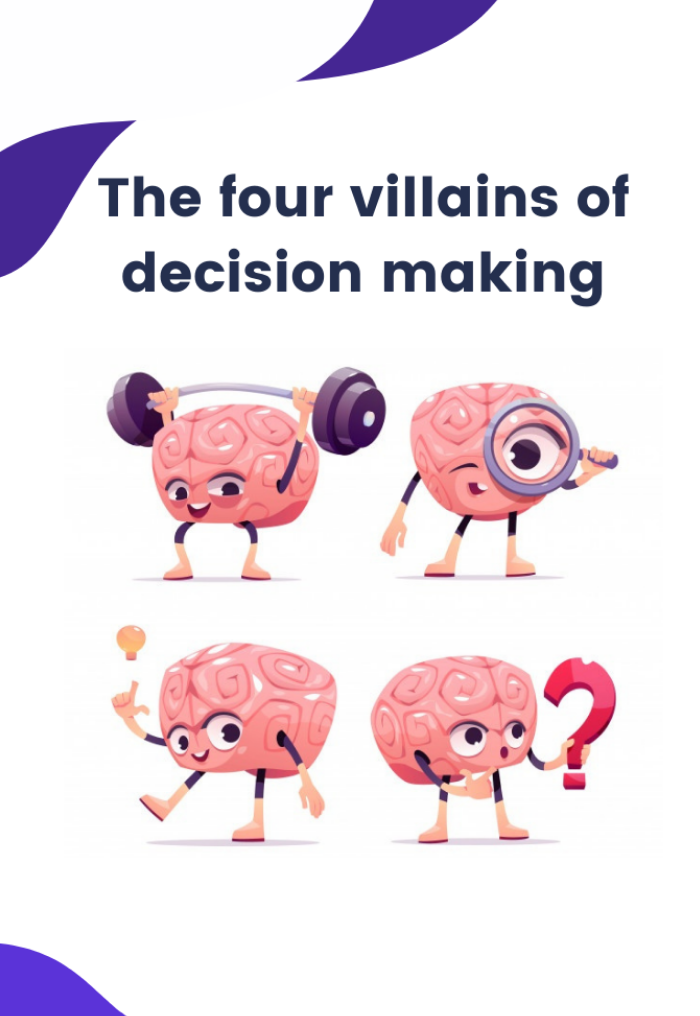The four villains of decision making

Parent Post
Daniel Kahneman
The normal state of your mind is that you have intuitive feelings and opinions about almost everything that comes your way.
We’re quick to jump
We’re quick to jump to conclusions because we give too much weight to the information in front of us, and we fail to search for new information, which might disprove our thoughts. This is called the “what you see is all there is” tendency. But that’s not the only reason we don’t make good decisions — there are many others:
- We’re overconfident.
- We look for information that fits our thoughts and ignore information that doesn’t.
- We are overly influenced by authority.
- We choose the short-term over the long-term.
- Once we’ve decided, we find it hard to change our minds.
Short-term emotionWhen we’ve got
Short-term emotion
When we’ve got a difficult decision to make, our feelings churn. We replay the same arguments in our heads and agonize about our circumstances.
If our decision were represented on a spreadsheet, none of the numbers would be changing—there’s no new information being added—but it doesn’t feel that way in our heads.
How to defeat it?
You make a choice. But short-term emotion will often tempt you to make the wrong one. So attain distance before deciding.
What’s in the spotlight
What’s in the spotlight will rarely be everything we need to make good decisions, but we won’t always remember to shift the light.
Most of us rarely use a process for thinking about things. If we use one, it’s likely to be the pros-and-cons list. So here are the four villains of decision-making.
Overconfidence People think they
Overconfidence
People think they know more about how the future will unfold.
How to defeat it?
You’ll often be overconfident about how the future will unfold. So prepare to be wrong.
Narrow framingIt is the
Narrow framing
It is the tendency to define our choices too narrowly to see them in binary terms. We ask, “Should I break up with my partner or not?” instead of “What are the ways I could make this relationship better?”
How to defeat it?
You encounter a choice. But narrow framing makes you miss options. So, widen your options.
Confirmation biasWhen people have
Confirmation bias
When people have the opportunity to collect information from the world, they are more likely to select the information that supports their preexisting attitudes, beliefs, and actions. We pretend we want the truth, yet all we really want is reassurance.
How to defeat it?
You analyze your options. But the confirmation bias leads you to gather self-serving information. So reality-test your assumptions.

